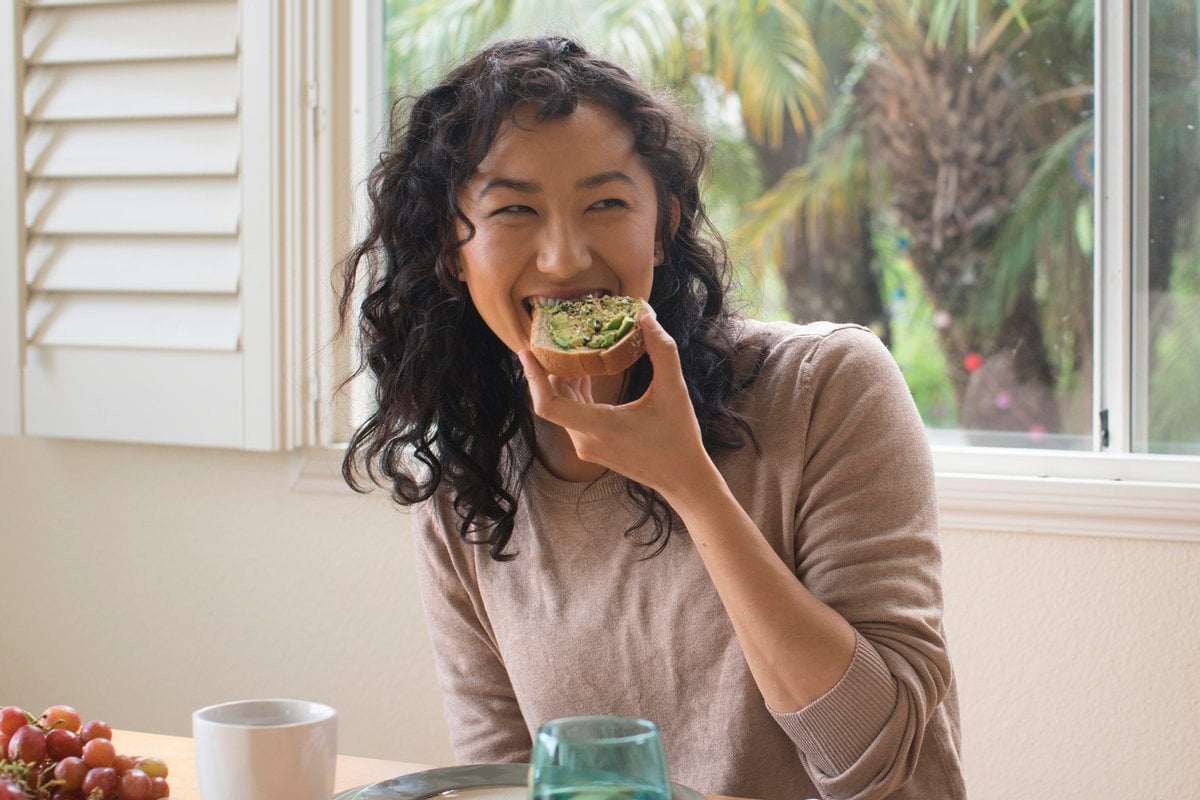
No sugar, low fat, no carb, keto, celery juice... the thought of eating healthy 24/7 just seems impossible. And if you're anything like us, more often than not you'll reach for quick fixes and end up going through these weird stages where it's all or nothing, before plateauing and just going back to square one.
Sigh.
But the fact is - we're the ones making it impossible.
Watch: Want to up your snack game? Here are some easy, healthy options you'll love. Post continues below.
There's just so much fluff, so much conflicting information and false statements floating around, that we all have absolutely no idea what's classified as 'healthy' anymore. Every day seems to bring a new diet trend, so it can be hard to know what's actually safe.
So, forget the fancy juice cleanses, the shakes, potions and restricted eating - we asked registered nurse and naturopath Madeline Calfas, who is the founder of The Wellness Group and co-founder of GMC Cosmedical, to tell us about the most common diet myths.
Listen to Mamamia's podcast for your face You Beauty, where we talk about what collagen actually does to your skin. Post continues below.




Top Comments